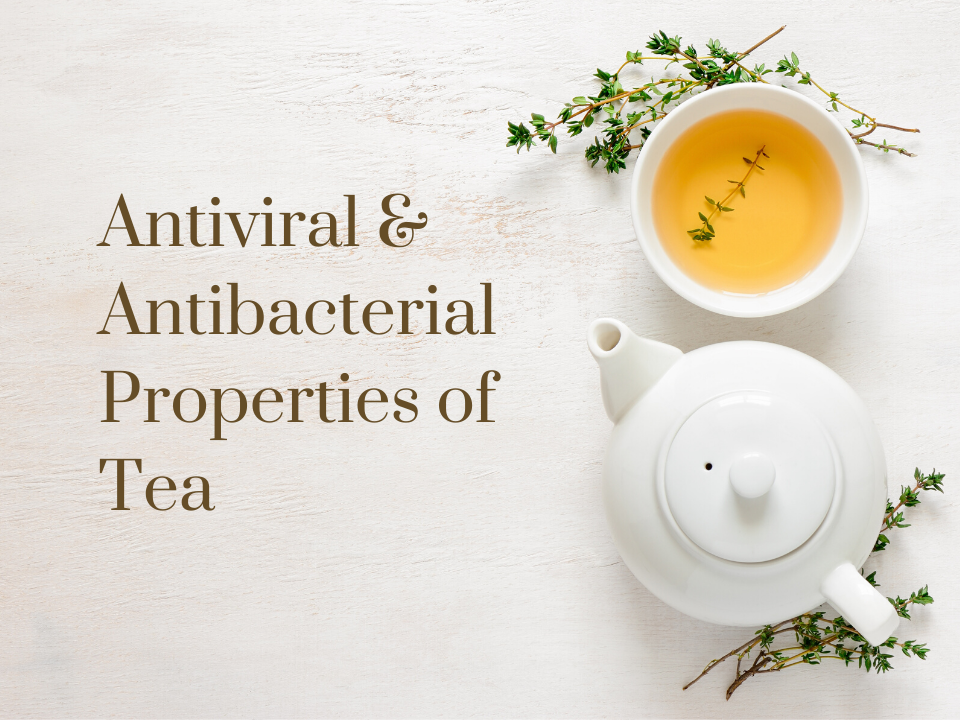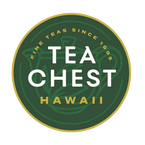
Nature's Wellness Drink
Given all the news about the coronavirus, I am reminded of the natural antiviral and antibacterial properties of tea. These health benefits have been demonstrated for centuries first as folk medicine and by science for several decades now. As one study noted, when modern medicine and tea can work together, the patient is usually better off.

Antibacterial effects of tea have been demonstrated against staph, choloera, e-coli, salmonella, bacillus and pseudomonas aeruginosa which is a leading cause of pneumonia and urinary tract infections. Antiviral effects of green tea have been demonstrated against the influenza virus, herpes, the tobacco mosaic virus, enterovirus, rotavirus, Epstein Barr virus and the HIV virus.
A 2012 study by researchers at Yonsei University in Korea concluded using green tea as a hand disinfectant, gargling with tea and drinking tea could be useful to prevent transmission of the flu virus.

Plant remedies are increasingly being recognized as an alternative to industrially produced antibiotics. Numerous studies provide credibility to the pharmacological use of tea as a remedy to treat infections and diseases caused by microorganisms.
One of the greatest food pairings to me is Japanese Sencha and sushi. Sencha’s astringency is the perfect reset for the sliminess of raw fish plus the green tea provides a natural shield against bacteria found in the raw seafood.
Many herbal teas also offer natural resistance against infectious diseases. These include rosehip, mint, pomegranate, thyme and cinnamon, to name a few. Herbal remedies may not mix well with prescription and over-the-counter medications, so it is important and highly recommended to consult a physician when using herbal tea as a treatment.
Antioxidant content fights germs. All camellia sinensis based teas contain high levels of antioxidants. The rule of thumb here is the lighter the color of the tea, the higher the antioxidant content. Simply put, white and green teas have the highest levels because they go through the least amount of processing.
Here are some teas to try if you haven't already.
Yin Zhen Silver Needles
This white tea is the least processed tea we carry and contains a high amount of polypheonols and catechins. The cup is delicate with a complex nuttiness to it. This is a great tea to sip on it's own or with bread.
Japanese Sencha
Grassy, sweet tea with high catechin content. Japanese green tea and sushi are the perfect food pairing (see above). Enjoy in the morning and with raw foods.
Hibiscus Bliss
Pomegranate has a high level of antibacterial benefit. Pomegranate powder is a key component of this refreshing tropical herbal.
Lemon Chamomile
Bacterial-killing cinnamon gives this tea a pleasant sweetness and makes Lemon Chamomile maybe one of the best chamomile teas ever. Cinnamon is also great at balancing blood sugar so enjoy with dessert and before bed.
Mint Mamaki
Mint has so many great benefits… good for digestion, metabolism, breathing and mint hates germs. Mamaki is also high in antioxidants and a natural inflammatory. The power of these two ingredients in one cup is awesome.


Leave a comment